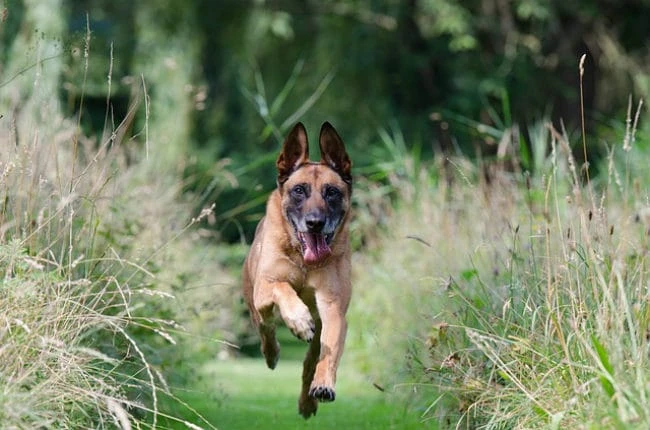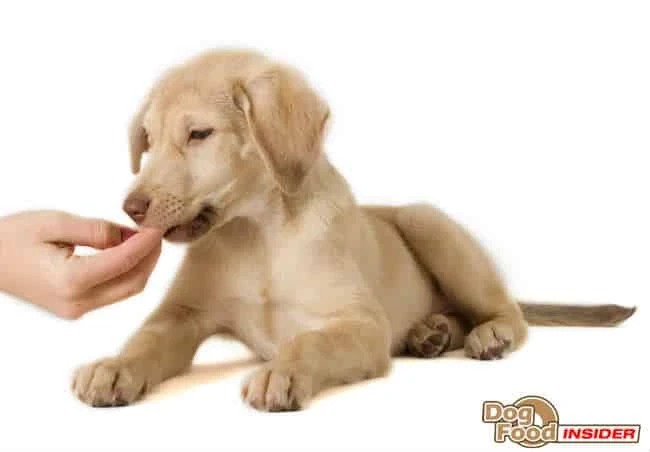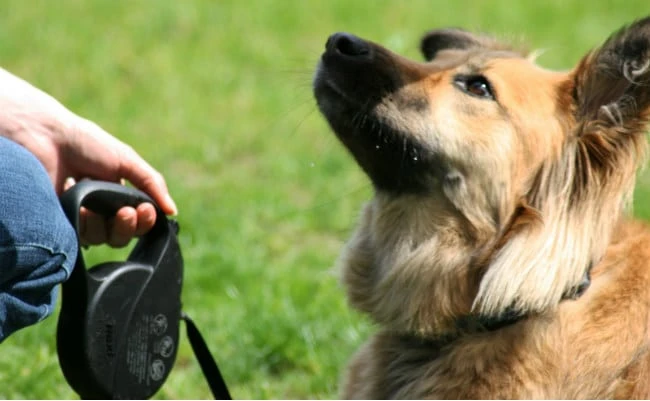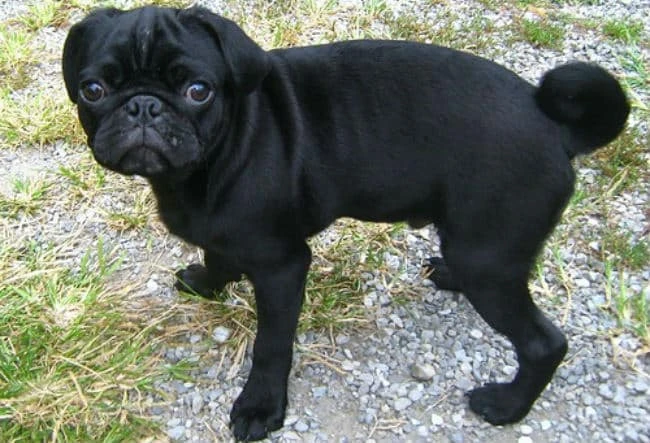How to Stop Your Dog From Chewing Furniture
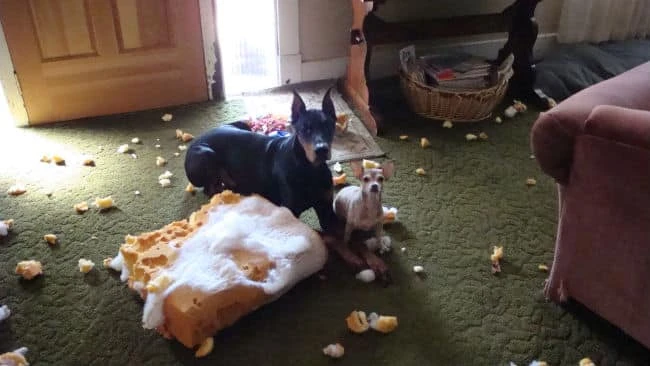
If your dog chews furniture, you might wonder what to do about the problem. Furniture is expensive to replace and an eyesore once it shows countless teeth marks. Welcoming guests to your home can be embarrassing if your tables and chairs look scruffy. Moreover, it is difficult to relax when sitting amongst the mess left by your furry pal. Whether he is an adult dog or a puppy, there are solutions you can use to deal with the issue at hand.
When you first bought your dog home, you probably did not imagine that he might wreck your furniture by constantly gnawing. However, many canines nibble and chew items that their human guardians would rather they left alone. Understanding why he behaves as he does will provide clues as to how to manage his antics.
Your Dog Might Be Chewing Furniture Due To Boredom
Just like humans, dogs can become bored. They need mental stimulation and plenty of exercise, and the exact amount they require of each depends on their energy levels. Furthermore, how much energy they need to expel on a daily basis is partially relative to their age and breed. Puppies and working dogs tend to need numerous outlets for their extreme vitality. In addition, some dogs possess high-energy personalities, and as a result, require heaps of exercise. If they do not have a means of ridding themselves of pent up energy, they display unwanted behaviors, including chewing furniture.
The answer to this is something most dog owners either don’t want to hear or something they can’t do because of time restrains. You need to walk your dog several times per day. Additionally, he needs interesting and mentally draining toys that he can react with when he is indoors. Those that can be stuffed with treats are suitable since he will have to use his brain to figure out how to acquire the tasty morsels they contain.
Both young and old dogs with low boredom thresholds will benefit from attending training classes that challenge their minds. Most importantly, teaching them to obey your commands will help them perceive you as the leader of the pack. Dogs are more obedient when they consider themselves a lower rank to their owners than if they believe that the opposite is true.
Your dog Might Be Chewing Furniture Due To Teething
Puppies start to teeth at six to eight weeks of age when their baby teeth surface. At three to eight months, their first set of teeth fall out and are replaced by adult teeth. Until they gain all of their grown-up teeth, they experience bouts of discomfort. While attempting to relieve themselves of the distress that accompanies teething they are liable to chew on anything that helps them accomplish their goal.
As your puppy teethes, provide him with an abundance of toys made from various materials on which he can gnaw. Avoid toys that he might easily rip apart in favor of those that are designed to be chewed. Every time your pal starts to wrap his chops around a leg of furniture, offer him a toy to remind him that there is a better alternative.
Chewing need not be a problem if you provide your dog with outlets for his energy. Mentally stimulating tasks such as training, and toys that are brainteasers will also help prevent him chomping on furniture. Furthermore, if you own a puppy that is teething, offer him plenty of suitable alternatives to furniture on which to gnaw.
Help! My Dog Also Goes Crazy in the Evenings!
In addition to chewing furniture during the day, does your puppy or adult dog go crazy in the evening? If so, you are not alone. Many owners of young canines complain that their furry pal turns into a little maniac when the sun goes down. In fact, although the evening is prime time for puppy craziness, energy surges can occur at any time of the day and result in unwanted behavior, including chewing on your furniture. During such times, your dog might nip, bite, jump, play, and whiz around the house in a hyperactive manner. No doubt, you want to know what you can do about this challenging behavior if it is occurring in your household.
Why Puppies And Young Dogs Get So Hyper
The cause of puppy hyperactivity could be anything from teething discomfort to hormonal fluctuations. In addition, puppies need plenty of outlets designed to accommodate bursts of energy as they grow. The amount of exercise they require depends largely on their breed. However, experts often recommend that several walks a day are necessary; allowing five minutes for every month a puppy has been alive. For example, a five-month-old needs to walk for at least twenty-five minutes per day, twice a day. At the same time, all puppies need lots of mental stimulation and playtime.
How To Calm Your Dog Down
The first ports of call, when trying to calm your puppy, are to look at whether the walks you provide are long enough and mental stimulation is available. Increasing exercise and stimulating mental activity such as training could help curb crazy behavior.
There again, if your bundle of fluff continues to behave like a thundering vampire that is all teeth and fur, there are extra things you can do to improve matters. Joining in with hyperactive behavior encourages it to amplify. Therefore, adopt a calm attitude when your puppy’s energy increases instead of increasing your own. You might also use a time out strategy, where you pop your puppy into his crate or onto a leash when hyperactivity swells.
If you discover that time out helps, you can repeat the practice whenever it is needed. However, if your puppy does not become calm and content when he is prevented from rushing about, it might be best to go with the flow, and distract his attention with a toy. The toy you select has to be his favorite in order to command his attention. A squeaky ball might do the trick, or a hollow treat toy that you can stuff with goodies. Alternatively, a change of environment could help. Perhaps a quick walk or a romp around the garden could change your puppy’s mood.
Young Children And Hyper Dogs
It should be noted that young children and hyperactive puppies are not a good mix, so do keep them apart when your pal is determined to rush around. It is also a bad idea to scold your puppy severely at such a time as doing so could excel his energy levels. Fearful puppies sometimes become snappy in order to defend themselves when they sense anger from their owners. Remember that he is not trying to upset you, even if he has just shredded your slippers and had an accident on the carpet. He is just being a normal puppy when he creates mayhem rather than deliberately sabotaging your peace.
The good news is that puppies usually grow out of this hyperactive stage and become mellower. Until then, provide him with plenty of exercise, mental stimulation, chew toys to satiate teething problems, and remember that you can always call time out when you need a break. One day your mad critter will turn into the wonderful companion you dreamed of having by your side if you are patient, calm, and provide boundaries.
